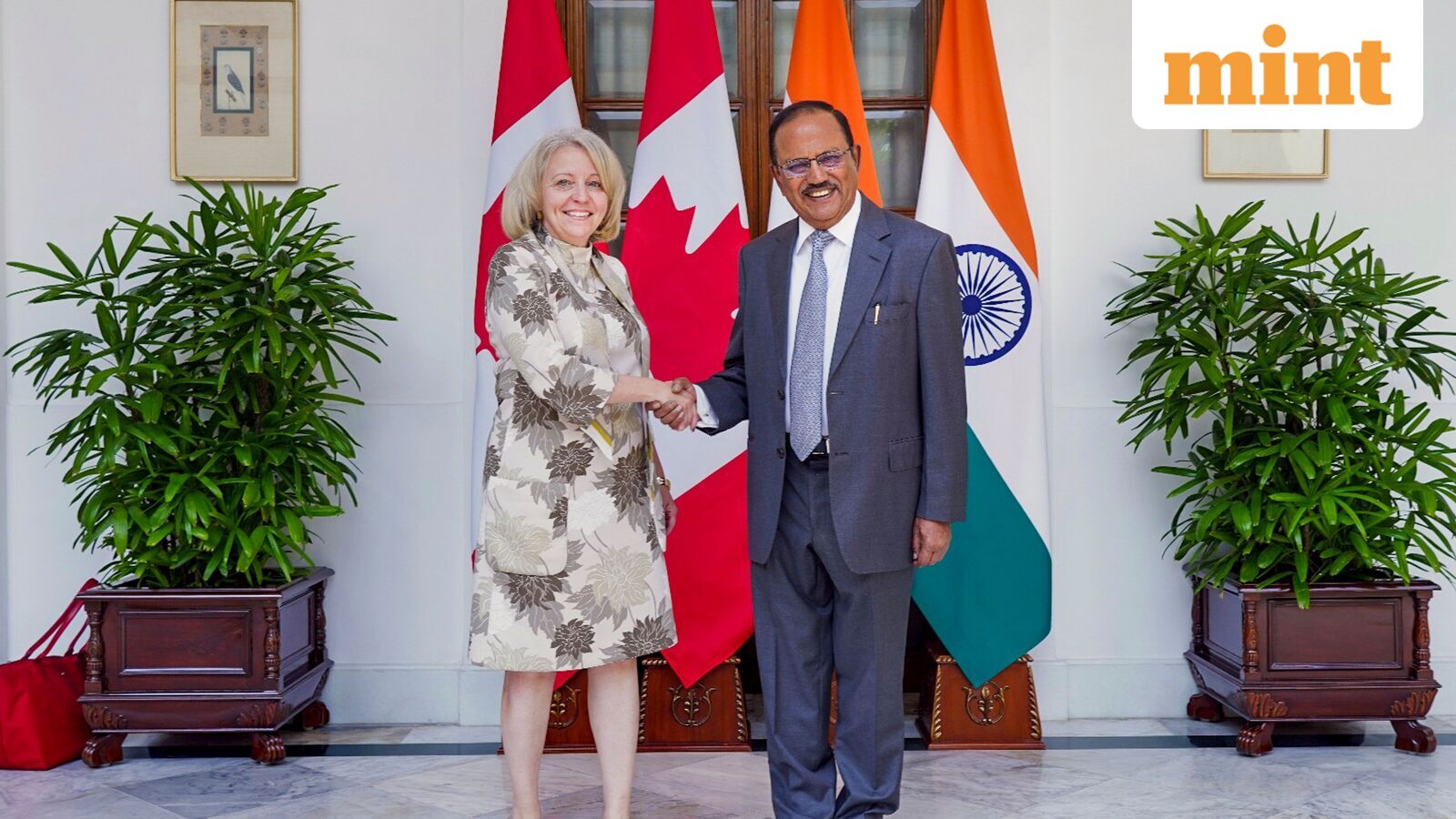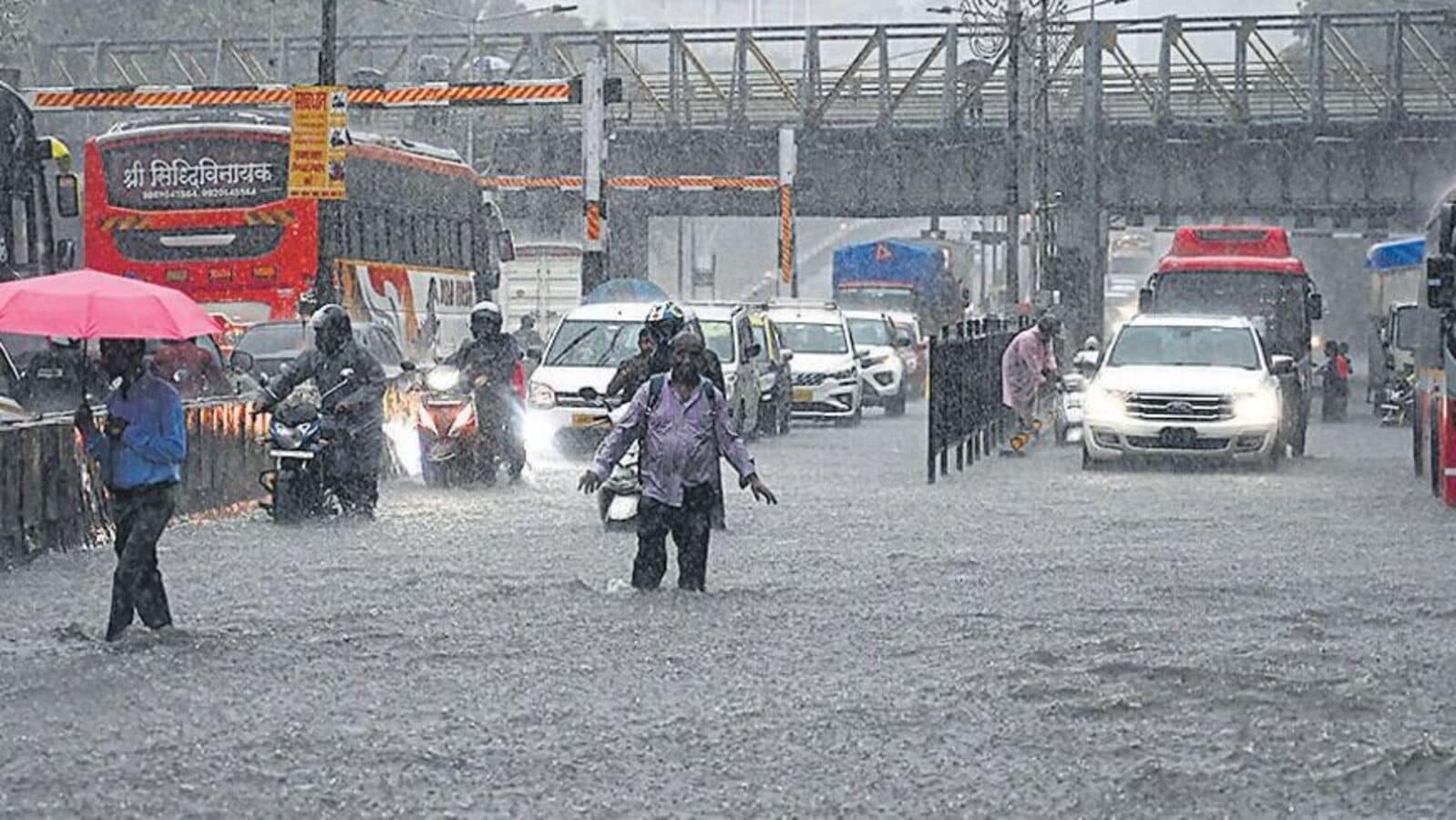Full story: Pakistan and India accuse each other of striking military bases

Hannah Ellis-Petersen
India and Pakistan have accused each other of cross-border missile strikes against major military targets, the most significant escalation so far in the brewing conflict between the two nuclear-armed neighbours.
On Saturday, India accused Pakistan of launching strikes on dozens of airbases and military headquarters across north India, using long-range weapons, drones and fighter aircraft. The accusations came a few hours after Pakistan said India had fired six surface-to-air missiles targeting three of Pakistan’s most important military bases early on Saturday morning.
Shortly afterwards, Pakistan officials confirmed they had begun their counter-attack against India, under the name Operation Bunyan Ul Marsoos, a phrase from the Qur’an roughly translating to “wall of lead”.
Read the Guardian’s latest report on the intensifying cross-border conflict between India and Pakistan at the link below.
Key events
At least 13 civilians killed in Pakistani Kashmir in last 12 hours – disaster authority
At least 13 civilians were killed in Pakistani Kashmir in the 12 hours to noon on Saturday, the region’s disaster authority said, as India and Pakistan traded fire after Islamabad’s military action against India in the early hours of the day. It is currently just past 2pm in Kashmir.
More than 50 people were also injured in the region, the authority said.
India has shut more airports along its northern and western regions following the flare up in tensions with Pakistan, AP reports.
The India’s Civil Aviation Ministry in a statement said the operation of civil flights will remain suspended from 32 airports until 15 May. It had previously announced flights from two dozen airports would be suspended.
The latest airports to be shut are mainly located in the northern states of Punjab, Jammu and Kashmir, and the western state of Gujarat, bordering Pakistan.
Full story: Pakistan and India accuse each other of striking military bases

Hannah Ellis-Petersen
India and Pakistan have accused each other of cross-border missile strikes against major military targets, the most significant escalation so far in the brewing conflict between the two nuclear-armed neighbours.
On Saturday, India accused Pakistan of launching strikes on dozens of airbases and military headquarters across north India, using long-range weapons, drones and fighter aircraft. The accusations came a few hours after Pakistan said India had fired six surface-to-air missiles targeting three of Pakistan’s most important military bases early on Saturday morning.
Shortly afterwards, Pakistan officials confirmed they had begun their counter-attack against India, under the name Operation Bunyan Ul Marsoos, a phrase from the Qur’an roughly translating to “wall of lead”.
Read the Guardian’s latest report on the intensifying cross-border conflict between India and Pakistan at the link below.
Pakistan’s prime minister says country has given its response
Pakistan’s prime minister, Shehbaz Sharif told the country’s political leaders in separate calls that “we have given India a befitting response and avenged the blood of our innocent citizens” following what he said were repeated Indian strikes on civilians, AP reports.
India has denied hitting civilian targets.
In a statement, his office said Sharif said Pakistan had shown “extreme restraint” in the face of Indian provocations.
He said Pakistan responded after India’s overnight missile attacks at air bases and other places. Pakistan’s retaliatory military operation against India, under the name Operation Bunyan Ul Marsoos, translating from the Arabic as “wall of lead”, targeted multiple bases including a missile storage site in northern India.
Pakistan’s foreign ministry quoted Saudi Arabia’s top diplomat, Prince Faisal bin Farhan, as saying he “appreciated Pakistan’s measured and restrained response” to India in a phone call to his counterpart.
In a statement, Pakistan’s foreign ministry said Ishaq Dar informed Farhan about the situation in the region following last night’s Indian attacks and Pakistan’s subsequent response. “Both leaders agreed to maintain close contact,” it said.
Saudi Arabia has in recent years tried to position itself as a mediator in conflicts including the wars in Ukraine and Gaza.
Two loud blasts were heard in Indian’s Kashmir’s summer capital of Srinagar on Saturday, near the city airport and the local headquarters of the army, according to an official, a Reuters witness, and local residents.
Two blasts were also heard in Kashmir’s Baramulla town, an official and residents told Reuters, as fighting continued between nuclear-armed neighbours India and Pakistan.
Pakistan’s defence minister has played down the likelihood of nuclear weapons being used. He earlier denied that the main body in charge of command and control of Pakistan’s nuclear weapons, the National Command Authority, had no plans to meet after reports that it had convened a meeting.
Defence minister Khawaja Asif told ARY TV: “This thing that you have spoken about (nuclear option) is present, but let’s not talk about it – we should treat it as a very distant possibility, we shouldn’t even discuss it in the immediate context.”
“Before we get to that point, I think temperatures will come down. No meeting has happened of the National Command Authority, nor is any such meeting scheduled.”
What we know so far
If you’re just joining us, here’s a recap of where things stand after Pakistan said it carried out retaliatory strikes in response to India targeting its military bases with missiles in a sharp escalation of the conflict between the two nuclear-armed neighbours.
-
The Pakistani military said India fired six missiles targeting Nur Khan, Murid and Shorkot – three of Pakistan’s most important military bases – early on Saturday morning. It said most were intercepted by Pakistani air defences.
-
Pakistan later launched a retaliatory military operation against India, its military said, under the name Operation Bunyan Ul Marsoos, translating from the Arabic as “wall of lead”. It targeted multiple bases including a missile storage site in northern India.
-
Pakistan military officials said the Pathankot military airfield in Punjab and Udhampur air force base in Indian-administered Kashmir were among the targets, with loud explosions heard from both.
-
Among India’s targets was Nur Khan air base in Rawalpindi, where the Pakistani military has its headquarters, which is about 10km from Islamabad. The strikes caused panic in the densely populated area. Pakistan later shut its air space for 24 hours.
-
India’s strikes and Pakistan’s counterattack brings the two countries the closest they have been to war in decades.
-
But India and Pakistan both said on Saturday they would not escalate hostilities if the other reciprocated. US secretary of state Marco Rubio urged both countries’ foreign ministers to find ways to “de-escalate and re-establish direct communication to avoid miscalculation”. The G7 called for “maximum restraint”, saying “further military escalation poses a serious threat to regional stability”.
-
The two countries have engaged in daily clashes since Wednesday, when India launched strikes inside Pakistan on what it called militant bases. At least 48 people have been killed since Wednesday, according to casualty estimates on both sides of the border that have not been independently verified.
-
The flare-up comes after an attack on Hindu tourists in Indian-administered Kashmir last month, killing 26 civilians. India has accused Pakistan of supporting militants behind the attack.
-
India’s military said on Saturday it had begun large-scale mobilisation of additional forces to the border, including activating its reserve territorial army, in case the conflict escalated further.
More here on the US secretary of state’s calls to top Indian and Pakistani diplomats amid the flaring conflict – just days after US vice-president JD Vance was reported as saying the US would not intervene and the fighting between the two countries was “fundamentally none of our business”.
Marco Rubio urged India and Pakistan to restore direct communication to “avoid miscalculation” in a series of calls, the state department said early on Saturday.
Rubio placed telephone calls to the rivals’ foreign ministers and, for the first known time since the conflict erupted, also spoke with Pakistan’s army chief, Col Asim Munir. considered the country’s key powerbroker, Agence France-Presse reports.
In the separate calls with the top diplomats, Rubio “emphasised that both sides need to identify methods to de-escalate and re-establish direct communication to avoid miscalculation”, state department spokeswoman Tammy Bruce said.
In the conversations with both foreign ministers and Asim Munir, Rubio also “offered US assistance in starting constructive talks in order to avoid future conflicts”, Bruce said.
The stepped-up diplomacy came as the conflict intensified between the nuclear-armed neighbours, with Pakistan launching counterattacks after India struck three of its air bases, according to officials.
Pakistan airspace shut for 24 hours
Pakistan’s aviation authority says its airspace is to remain closed for the next 24 hours, AFP just reported.





